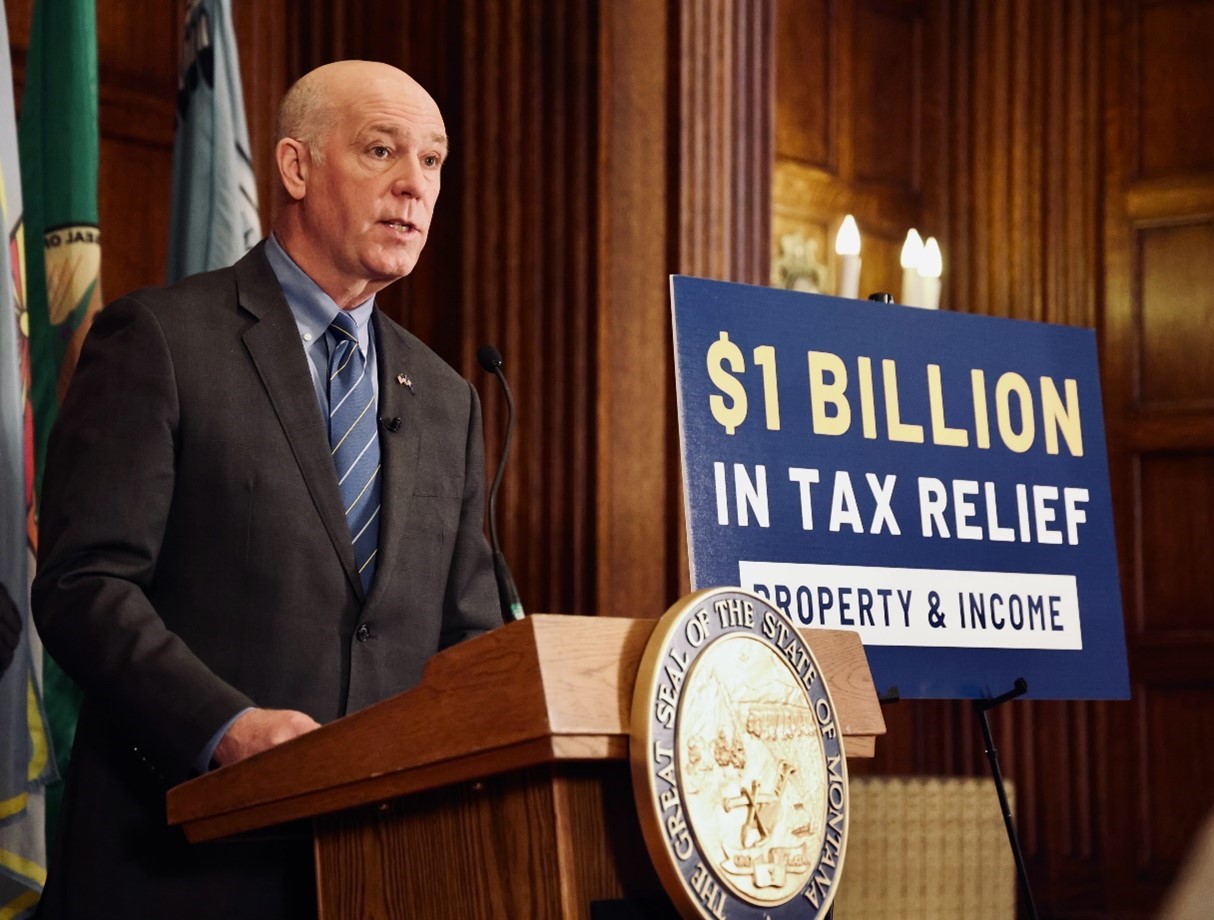Gianforte Pushes to Ease Business Equipment Tax Burden, Proposes Higher Exemption

As National Agriculture Week comes to a close, Governor Greg Gianforte is ramping up efforts to reform Montana’s business equipment tax, emphasizing its financial strain on small businesses, farms, and ranches. Speaking at a press conference, the governor reiterated his proposal to raise the tax exemption from $1 million to $3 million, a move aimed at eliminating the tax burden for over 700 additional businesses.
“Over the last four years, our small business owners, farmers, and ranchers have felt the pinch of Joe Biden’s affordability crisis,” Gianforte stated. “If we’re serious about addressing the affordability crisis and passing conservative reforms, reducing the business equipment tax should be a top priority.”
Montana’s business equipment tax requires businesses—including family farms and ranches—to pay annual taxes on essential machinery and equipment, diverting funds that could otherwise be used for expansion and job creation. Gianforte’s proposal, introduced as Senate Bill 322 by Sen. Josh Kassmier, R-Fort Benton, builds on past legislative efforts to ease the tax burden.
Since 2021, the governor and lawmakers have progressively increased the exemption threshold, eliminating the tax for over 5,000 businesses by raising the exemption from $100,000 to $1 million. Now, Gianforte is pushing for an even higher threshold to further alleviate financial pressures.
“For farmers, it’s a tax on tractors and combines. For dentists and doctors, it’s a tax on machines and even their instruments. For restaurant owners, it’s a tax on grills, and even knives, forks, and spoons,” Gianforte said. “For a carpenter, welder, plumber, or homebuilder, it’s a tax on their tools. We should call this tax what it is—it’s a Tool Tax.”
Gianforte also shared insights from a recent visit to Circle View Farms in Fort Benton, where he spoke with owner Brent Hanford. Hanford expressed frustration over being taxed repeatedly on equipment he already purchased with taxed income.
“The tax takes money he would otherwise use to hire additional help or invest in new machinery to increase efficiency,” Gianforte explained. “Instead, he has to factor in that tax when pricing his goods for market, and like any other tax, that cost often gets passed on to customers.”
Senate Bill 322 is set for a hearing in the Senate Taxation Committee on March 27. If passed, it would mark another significant step in reducing tax burdens on Montana’s businesses and agricultural industry.










